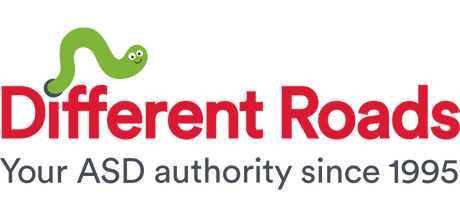When a child first gets diagnosed with Autism, parents are often overwhelmed. A good doctor will give a prescription for ABA therapy as well as other necessary therapies such as Speech, OT, PT, Feeding, etc. However, of those therapies, the one that is usually not familiar is ABA. A simple Google search or, even worse, joining a Facebook group is going to lead a parent down a path full of controversy, fear mongering, and misinformation. This will often leave parents very leery of any ABA facility they meet with, or completely turned off from the best medically-proved therapy for young Autistic children.
So I created a list of questions for parents to ask potential ABA facilities to find the best match for their family. After all, they’re entrusting you with their child for hours upon hours. The child is often non-verbal and unable to tell you how their day was. So a parent must trust the facility completely. In writing this list for autism behavior centers, I also kept in mind the warnings/worries of abuse touted by certain internet groups, in hopes to appease them should they come across this list. Parents can use this list in their ABA search and clinics can have this list on hand for parents, and their potential answers ready.
1) Do you force eye contact or stop unharmful stims? This is one of the top citations of “abuse” from certain internet groups. Some parents don’t want to force eye contact and view their child’s non-harmful, non-disruptive stims as a beautiful part of their personality.
2) How do you avoid meltdowns? Knowing that you are going to avoid meltdowns will help parents feel far more comfortable about sending their child.
3) Do you ever withhold food? Even neurotypical kids are picky. Us “Autism Parents” are usually self-conscious about the fact that our kids survive on pretzels and Pediasure. Telling a child “No chicken nuggets until you’ve finished your green beans” will probably mean a hungry child, and an unhappy parent.
4) How do you handle naps? With the diagnostic age of Autism getting increasingly lower, children are starting ABA before they are ready to phase out of naps. Having a plan in place for nap time will make a parent know their child is getting their needs met.
5) What are your parent training session requirements? ABA is a fantastic therapy, but without the parents upholding it at home, it’s pretty hard to fully instill the methodology and give the child all the help they deserve Parent training lets parents feel more involved in their child’s therapy which is essential!
6) What are the requirements of your staff? Parents researching ABA facilities are shocked to hear you only need a high school diploma to be an RBT. If you have a higher standard for your staff of any sort, parents will feel more comfortable sending their children to your facility.
7) What will my child’s daily schedule look like? Knowing what a child does throughout the day helps a parent make the decision for what works best for their child.
8) How do you incorporate academics? Many parents are choosing between ABA and Preschool. Being able to tell parents your ABA facilitates some sort of Academics (We focus on writing, the alphabet, etc) will make the decision far easier!
9) How do you prevent harmful stims? Parents recoil at the thought of their child being restrained. What are your rules around touching kids? How do you keep our child from harming themselves, or anyone else?
10) How do you communicate with me? My child can’t tell me about his day. So I need his therapists to do so. What are you doing to tell me about his day? What he ate? Did he name? Diaper changes? Injuries? The more communication, the better!
This list for ABA facilities isn’t comprehensive. It won’t work for every facility. However, these are the questions I have found most parents want the answers to in order to find the best facility for their kids. And to feel they aren’t sending their children to an “abusive” environment.
About the Author:
Cassie Hauschildt is the mother of her Autistic son, Percival, who was diagnosed at 20 months old. Since his diagnosis, she has become an advocate for autistic children. She dedicates her time to mentoring parents of autistic kids through the tough first few months post-diagnosis. She also is trying to get rid of the negativity surrounding ABA therapy. She does this through humor, while using real talk, on her TikTok @AnotherAutismMom. She also runs “The Dino and Nuggets Corner” Facebook Group.
